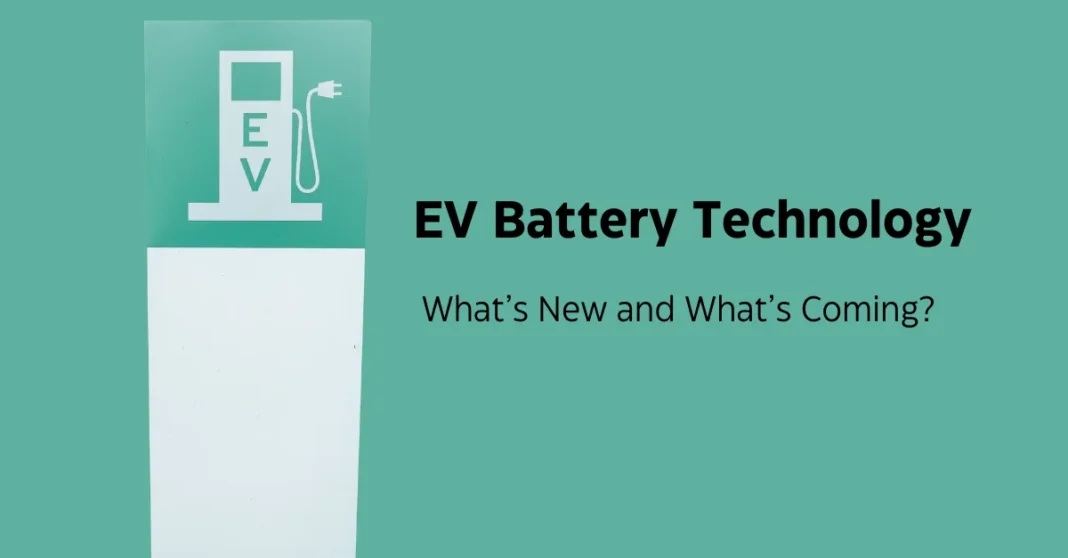As electric vehicles (EVs) continue to gain popularity, one of the most critical aspects of their development is battery technology. The evolution of EV batteries not only determines the performance, range, and cost of electric cars but also plays a significant role in their adoption and environmental impact. Here’s an in-depth look at the latest advancements in EV battery technology, as well as what we can expect in the near and distant future.
What’s New in EV Battery Technology?
- Improved Energy Density
- Higher Efficiency and Range: One of the primary goals in EV battery development is increasing energy density—this means packing more energy into the same size and weight of the battery. The result is longer driving ranges without increasing the size or weight of the vehicle. For instance, Tesla’s 4680 battery cells (announced in 2020) offer a significant improvement in energy density compared to earlier models, enabling EVs to go farther on a single charge.
- New Chemistries: Manufacturers are also exploring new chemistries for batteries. Lithium iron phosphate (LFP) batteries, for example, are gaining popularity due to their lower cost and safety compared to traditional lithium-ion batteries. While they generally have slightly lower energy density, their robustness and thermal stability make them appealing for many automakers, especially in mass-market EVs.
- Solid-State Batteries
- A Game-Changer on the Horizon: Solid-state batteries (SSBs) are seen as a breakthrough in EV battery technology. Unlike conventional lithium-ion batteries, which use a liquid electrolyte, solid-state batteries replace this liquid with a solid electrolyte. This technology promises higher energy density, longer lifespan, faster charging times, and improved safety due to a reduced risk of fires or leaks.
- Progress and Challenges: While solid-state batteries hold great promise, the technology is still in the early stages of commercialization. Several companies, including Toyota and QuantumScape, are working on refining the technology, but mass production is still a few years away. If successful, solid-state batteries could be a major game-changer for EVs, potentially providing significant improvements in performance and cost-effectiveness.
- Faster Charging Technologies
- Ultra-Fast Charging: One of the key concerns for EV owners is charging time. Traditional EVs can take several hours to charge on standard outlets, and even fast chargers may take 30 minutes or more. Recent innovations in fast-charging technology, such as Tesla’s Superchargers, aim to reduce charging times significantly.
- Silicon Anode Batteries: Companies like Tesla and others are experimenting with silicon-based anodes instead of graphite. Silicon can store more lithium ions, significantly increasing the battery’s energy capacity and reducing charging times. This technology is also being integrated into fast-charging solutions, allowing EVs to charge much more quickly than before.
- Battery Recycling and Second-Life Applications
- Recycling Initiatives: As EVs become more common, so does the need for sustainable recycling methods for used batteries. Several companies, such as Redwood Materials (founded by former Tesla CTO JB Straubel), are working to create closed-loop systems to recycle and reuse materials from old EV batteries. This helps reduce the environmental impact of mining for raw materials and provides a more sustainable path forward.
- Second-Life Batteries: Used EV batteries, while no longer suitable for vehicle propulsion, can still hold enough charge to be used in secondary applications, such as energy storage for homes or the grid. Companies are developing systems to repurpose old EV batteries into affordable energy storage solutions, which could be especially useful for integrating renewable energy sources like solar power.
What’s Coming in EV Battery Technology?
- Lithium-Sulfur (Li-S) Batteries
- Next-Generation Battery Chemistry: Lithium-sulfur batteries are another promising next-generation technology that could revolutionize EV battery technology. Sulfur is abundant and inexpensive, and lithium-sulfur batteries are expected to offer much higher energy density than traditional lithium-ion batteries. This could result in EVs with significantly longer ranges at lower costs.
- Challenges: While they offer significant advantages, lithium-sulfur batteries face challenges, such as lower cycle life (the number of charge/discharge cycles they can endure) and issues with the sulfur cathode breaking down. Researchers are working to overcome these challenges, and companies like Oxis Energy are leading the way in making Li-S batteries a practical option for EVs.
- Sodium-Ion Batteries
- A Potential Alternative to Lithium: Sodium-ion batteries are being explored as an alternative to traditional lithium-ion batteries. Sodium is more abundant and cheaper than lithium, making sodium-ion batteries an attractive option from both a cost and environmental perspective. While sodium-ion batteries currently have lower energy density than lithium-ion, they are improving in performance and could serve as a cost-effective solution for EVs in the future.
- Mass Adoption Timeline: Companies like CATL and Faradion are pushing forward with sodium-ion research, and we may see these batteries integrated into lower-cost electric vehicles in the next 5–10 years. They are particularly suited for urban electric vehicles, where range is less of a concern.
- Battery Manufacturing Advancements
- New Production Techniques: As EV demand grows, manufacturers are working on innovative production techniques to lower the cost of batteries. For example, Tesla’s new 4680 battery cell, which integrates several components into one unit, simplifies manufacturing and reduces costs. Additionally, companies are increasingly focusing on scaling up gigafactories to mass-produce batteries at competitive prices, which is expected to drive down the cost of EVs.
- Automation in Manufacturing: Automation and artificial intelligence (AI) are becoming integral in battery production, helping optimize supply chains and manufacturing processes. AI is being used to predict battery performance, improve quality control, and enhance the efficiency of production lines.
- Quantum Dots and Nanotechnology
- Advanced Materials for More Efficient Batteries: Quantum dots and nanomaterials could play a key role in future battery technologies. Researchers are investigating the use of nanotechnology to increase the efficiency and capacity of batteries. For example, quantum dots could potentially help in the creation of batteries that charge more quickly and store more energy, paving the way for EVs with faster charging times and longer ranges.
- Advanced Materials for More Efficient Batteries: Quantum dots and nanomaterials could play a key role in future battery technologies. Researchers are investigating the use of nanotechnology to increase the efficiency and capacity of batteries. For example, quantum dots could potentially help in the creation of batteries that charge more quickly and store more energy, paving the way for EVs with faster charging times and longer ranges.
- Wireless Charging (Inductive Charging)
- Charging Without Cables: Wireless charging, or inductive charging, involves charging EVs through electromagnetic fields rather than physical cables. This technology has been around for some time in smaller devices like smartphones, but it is now being adapted for use with electric vehicles. While it’s not yet common in public charging stations, companies are working on integrating wireless charging pads into roads and parking spaces. This could make charging EVs more convenient and eliminate the need for drivers to plug in cables.
Conclusion
EV battery technology is advancing rapidly, with numerous breakthroughs on the horizon. From improvements in energy density and faster charging technologies to promising innovations like solid-state and lithium-sulfur batteries, the future of EV batteries looks bright. While there are still challenges to overcome—such as cost, performance, and scaling—ongoing research and development in battery technology will continue to push the boundaries of what’s possible. In the coming years, we can expect more affordable, efficient, and sustainable batteries, making electric vehicles even more attractive to consumers and accelerating the transition to a cleaner, greener automotive future.
#EVBatteryTech #ElectricVehicles #BatteryInnovation #SolidStateBatteries #SustainableEnergy #EVInnovation #FutureOfEVs

